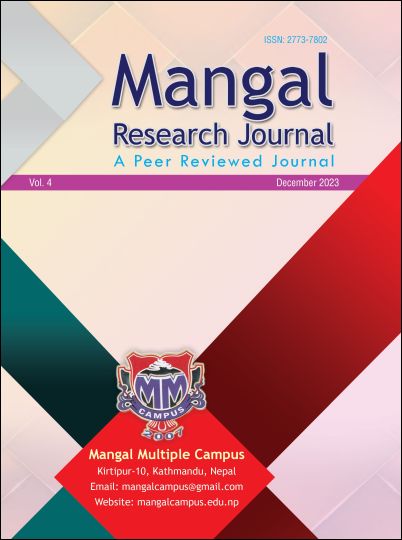Non-Academic Factors (De) Motivating Private School Teachers: A Case of EFL Teachers in the Nepalese Context
DOI:
https://doi.org/10.3126/mrj.v4i01.61719Keywords:
EFL teachers, (de)motivation, institutional school teachers, paradigm shift, NepalAbstract
Motivation plays a crucial role to regulate an individual for the exceptional performance in the workplace. Most importantly, it has drawn a grave attention of the people involved in the field of education in general and English language teaching in particular. This study discusses the fundamental factors, which are non-academic in nature, (de) motivating the secondary level EFL private teachers in the Nepalese context. For the conduction of this study, the narrative inquiry was employed as a research design. Four EFL male teachers teaching at institutional schools in Kathmandu Valley were selected as a sampling population of the study. The informants were chosen via purposive non-random sampling procedure. The data were obtained through in-depth teachers' narratives. The results show that the EFL institutional school teachers were found to be demotivated because of the non-academic factors, which include low social status, sore throat problem, nepotism and kinship, and improper schools' location. This study also suggests to the teacher educators, policy makers, environmentalists, and academic administrators that they take into account these non- academic factors that demotivate the EFL private school teachers so as to bring about a paradigm shift in the overall education system in general and English language teaching in particular in Nepal.




